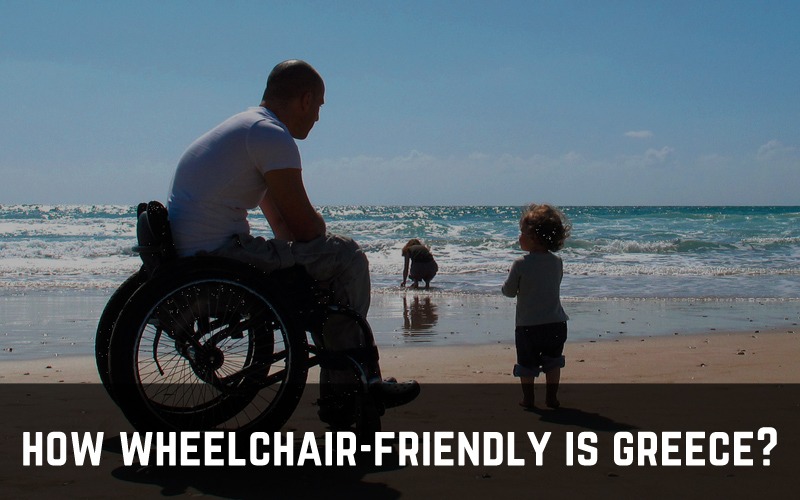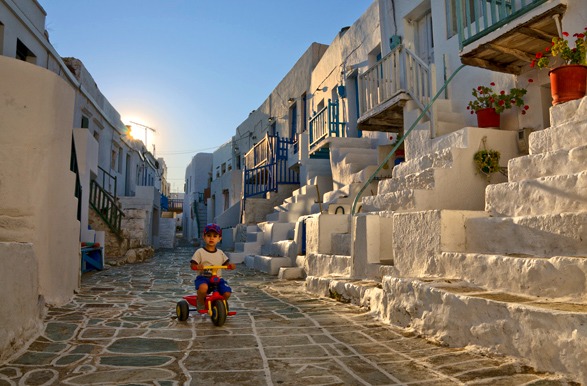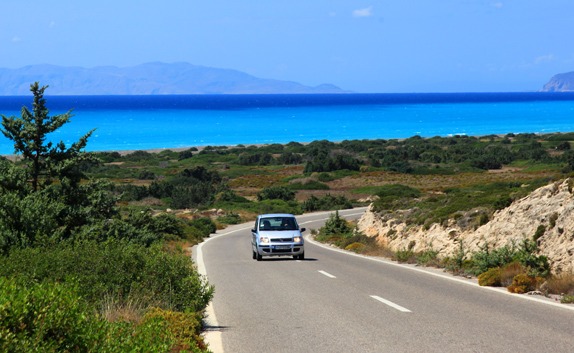By on 16-04-2014
Share this post:

We frequently receive emails at Greeka.com asking if it is easy to get around Greece in a wheelchair. This is a tough question and our answer is usually something like “It is not easy, it depends on where you go, it will probably be difficult and you might need someone to help you”. In this article, let’s talk about disabled travel in Greece in detail. How wheelchair-friendly is Greece?
Hilly landscape
Generally, the landscape of Greece is not friendly for disabled or people with kinetic problems. The country is hilly and mountainous, even the islands. Many settlements were actually perched on the slopes of a hill for protection against enemies in the Medieval times. In fact, the term acropolis means “the highest spot in the town”, as this is where the castles and temples were constructed. Many modern towns are built around the ancient acropolis, like Athens, on the slopes of hills like most Choras in Cyclades islands or on the edge of cliffs, like the caldera villages of Santorini. This landscape is certainly not convenient for disabled travel in Greece.
Architecture
The modern architecture of the Greek towns is not wheelchair-friendly either. Sidewalks are narrow and it is not easy to host wheelchairs or even baby strollers, especially in large towns. Also, street parking raises issues, with cars parked half on the sidewalk or very close to each other and leaving no space for a wheelchair to get through.
The architecture of the villages is also not convenient, especially in the Cyclades islands with the narrow paved streets and steps. For example, many disabled tourists in Santorini island arrive by cruise and it is possible to get up to Fira using the cable car from the old port. However, once they get up to the town, they meet a labyrinth of narrow paved streets that needs maximum flexibility from their side.
What has changed after the Athens Olympics 2004
It is true that disabled travel in Greece made large progress with the occasion of the Athens Olympics and Paraolympics 2004. For example, the Greek State bought blue buses with disability-friendly design, some important archaeological sites (like the Acropolis Rock) got ramps and car parking seats for disabled were designed on the streets. Also, new rules were set that demands from newly-established businesses, like hotels or restaurants, to have facilities for wheelchairs. But unfortunately, these occasions are sporadic.
For example, surely the international airport of Athens is 100% designed to be wheelchair-friendly, but this is not the case for other airports around the country, especially few small airports in the Greek islands. Some buses in Athens are accessible by the disabled, but it is not like that with the majority of buses in the islands. Some Greek ferries have special cabins and public rooms for the disabled, but it is not so easy with the small local ferries that run short routes between Greek ports. Some organized beaches have wooden ramps that get to the seaside, but these ramps usually do not start from the parking area but from the beach bar.
Greek hotels for disabled
Over the last years, many hotels in Greece are redesigning their spaces so that they are accessible by wheelchair. Amazingly there are also a few hotels around the country that have been specially designed from the beginning for accessible holidays in Greece. Such is Eria Resort in Crete, or Sirens Resort in Loutraki Peloponnese which even has sea ramps for easy access to the sea and provides sea-wheelchair, something that you will not find easily in Greece.
Greek holiday packages for disabled
Although few steps have been made towards this direction, there are some Greek travel agencies that organize holiday packages specially for disabled travel in Greece, including bookings in specially-designed hotels, transfers, and tours in disabled-adjusted vans.



